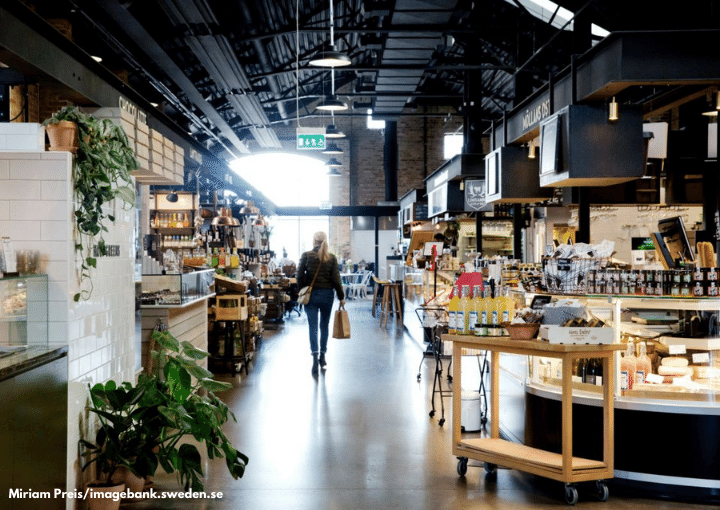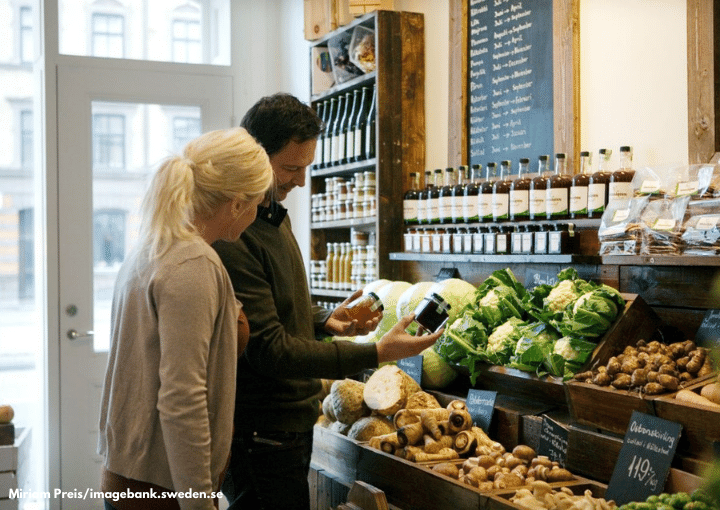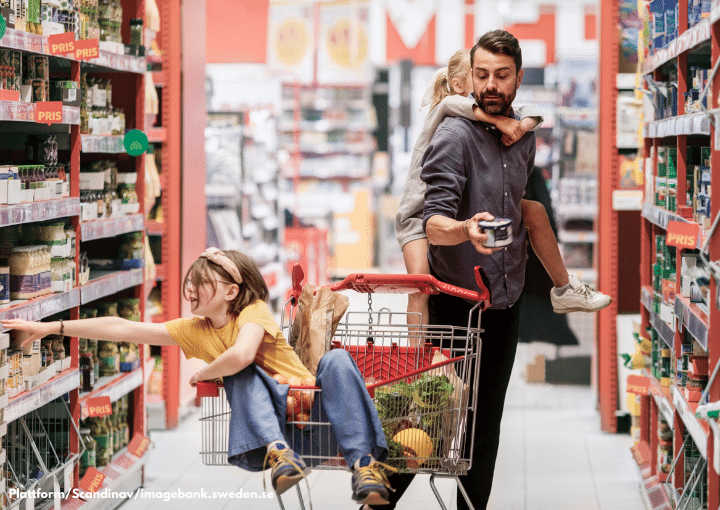Shopping in the Nordics: 9 things you should know before you hit the supermarket
“What does this 07-23 sign on the supermarket building mean?”
This might be one of the most common questions people who visit the Nordics (the first time) ask.
Shopping in the Nordic countries is quite a unique experience. It is not that it differs a lot from what happens in other European countries.
It’s just that there are different norms, some of which might seem weird to foreigners, to say the least.
While for some cultures, a visit to the supermarket might also be considered an opportunity to go out, see people, talk (God forbid!) and socialise, shopping in the Nordics is culturally more a chore to be undertaken.
Of course, going for shopping clothes with friends is a Nordic habit, too.
But in any case, before you hit the supermarket, be aware of the norms and “rules” that are valid there.
Here, we’ve gathered the 9 most interesting and useful ones. Let’s go!
1. Opening hours
The Nordics are mostly free markets in the sense that shops, especially in cities, may open on Sundays or until late at night. There is no hard and fast rule but generally, it’s good to be aware of the opening hours of the supermarkets.
Most of the time, stores mention their opening hours on their front window or facade. They usually do it with the 24-hour format, for instance, 07-23. If they are open on Sundays, they may use the same format but put it in brackets (08-15). So, when you see a similar sign at a supermarket, you now know.

2. No cash?
The Nordics are well on their way to becoming 100% cashless societies. Of course, they still use cash but its use is very very limited. There are also some shops, for example, in Denmark, that do not accept cash anymore, because as they say “the cost and risk of keeping and managing cash in the store is much higher than the potential loss of sales due to the rejection of cash”. Fair enough!
Most people pay with cards, although it’s extremely popular now to pay with payment apps, like G Pay, Apple Pay or new apps like Swish in Sweden or MobilePay in Denmark.
Also, it used to be popular to request cash from the cashier of the supermarket and other shops. As the Danes would say”på beløb”, meaning something like “on the amount”. Meaning that apart from paying the bill, you also request some cash. The amount of cash eligible for consumers to take from cashiers is limited and regulated by the state.

3. Want the receipt?
When you buy from a shop or supermarket in the Nordic, it is not automatically given that you will get a receipt. A receipt does get printed from the cashier terminals but in most cases, consumers don’t want them. So, it’s become a habit for cashier employees to ask the consumers if they do want the receipt.
Next time, you hear something from the employee behind the cashier, that might be it. Don’t worry or panic. Just say “No, thanks!”.
4. Free fruit
Kids are almost like the most honoured people everywhere in the Nordics. They are welcome everywhere and enjoy privileges (along with their parents).
It’s quite common to see buckets with free fruit for kids in Nordic supermarkets.
Yes, you (um, your kids) can just take one and eat it. It’s free, no questions asked.
Usually, this fruit would otherwise be thrown away, so what better way to save the planet from more food waste and motivate healthy diets than giving it away for free to kids.
5. Super expensive
Yes, they are. Plain as that. The cost of living in the Nordics is extremely high with Denmark and Norway topping the worldwide lists (usually along with Switzerland).
Shopping in the supermarket can cost you a lot. But is this an absolute truth?
Well, it depends. There are always discount chains that have amazing offers. Sometimes, they can discount products as far as 50% or more.
Also, it’s good to have in mind that Nordic societies have evolved into very environmentally conscious ones. That being said, many goods on the shelves are environmentally friendly (like less packaging, no plastics) and all supermarkets have extensive ranges of bio or organic food. All these products are by default more expensive, so watch out.

6. Alcohol
No, in most Nordic countries, with the exception of Denmark, alcohol is not sold in supermarkets. Convenience stores and supermarkets can only sell non-alcoholic beverages or ones with very low alcohol percentages.
There are exclusive shops, run by the state (state monopolies) that sell alcoholic drinks. This was decided decades ago in an attempt to prevent excessive alcohol consumption.
They also have limited opening hours. They are not open late at night or on Sundays.
Next time in the Nordics, watch out for the following state-run liquor shops:
- Alko — Finland
- Vínbúðin — Iceland
- Vinmonopolet — Norway
- Systembolaget — Sweden
- Rúsdrekkasøla Landsins — Faroe Islands
7. No free bags
Now, it’s a reality in all EU countries but also elsewhere in the world. No free plastic bags are offered in the supermarkets. This is for protecting the planet from the excessive use of plastics.
Also, if you need a bag to carry your shopping, watch out for a place near the cashier that has bags, take as many as you wish and put them on the counter, just like other products. The employees won’t ask you if you want bags or not.
They assume you don’t, right?

8. Shopping malls
Some people who visit the Nordics are quite curious why so many supermarkets are in mini or proper shopping malls. Well, it’s the cold. Nobody wants to do a chore in the freezing cold, wind, rain or snow.
This is why malls are very popular in the Nordics. Most supermarkets (but not all) are not open-air, but rather in buildings that protect consumers from the weather. And vice versa. Most shopping malls have supermarkets, even in the centre of big cities, like Copenhagen.
9. Free buckets (!)
Saved the best for last, we guess. If you visit a Finnish supermarket, chances are you will see at least one promotion with free buckets of any kind. Wait, what is all this with the buckets? Not sure when or who started it but it’s probably a couple of decades-old tradition.
Giving away free buckets on their own or with the purchase of specific promo products is very popular and Finns love it. They say they’ve seen tens or hundreds of Finns waiting outside a new store to receive their free bucket. Finns have conviction! That’s what they have sisu for.
It’s certainly something worth observing. So, in case you need a new bucket at home and live in Finland, go to the supermarket to get a free one. Chances are you will get one.
